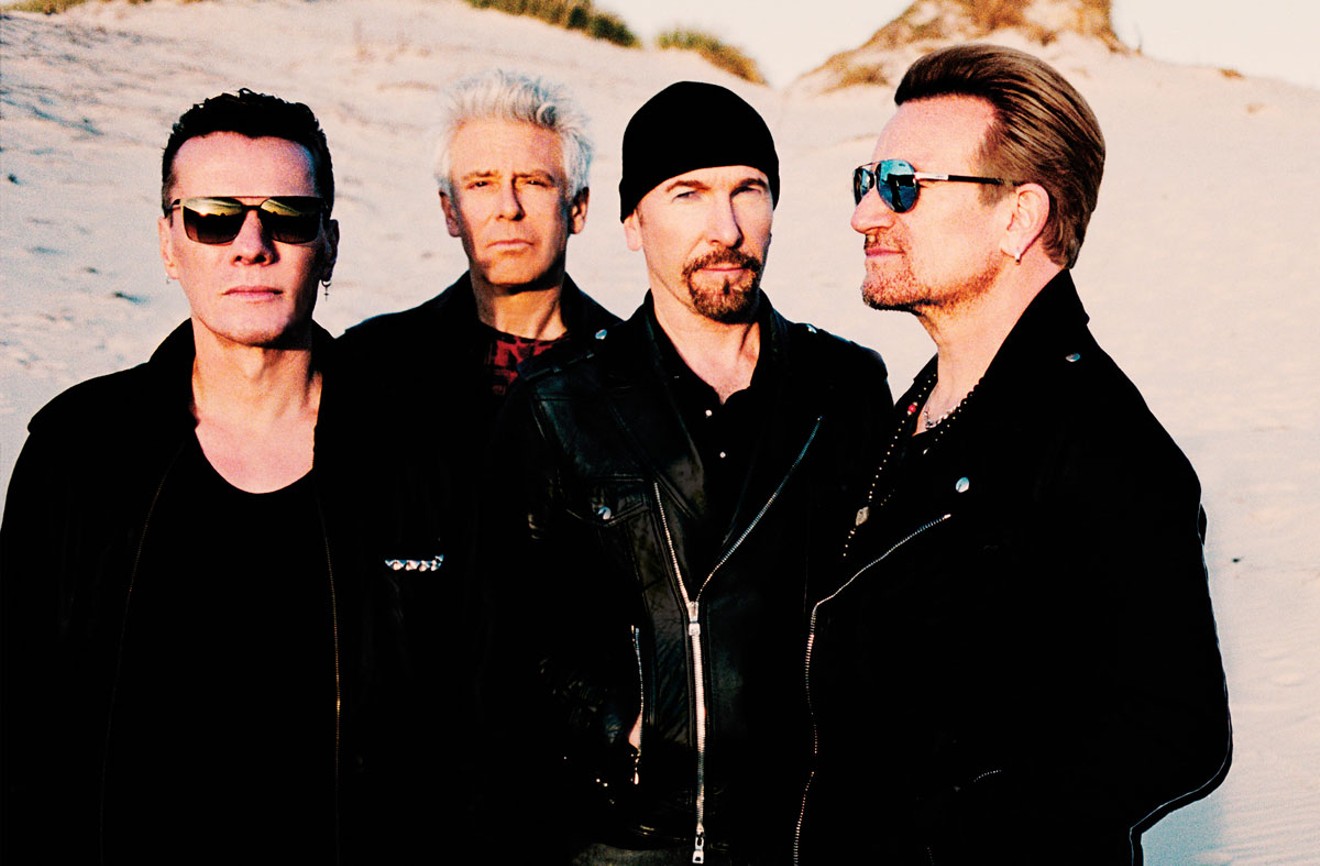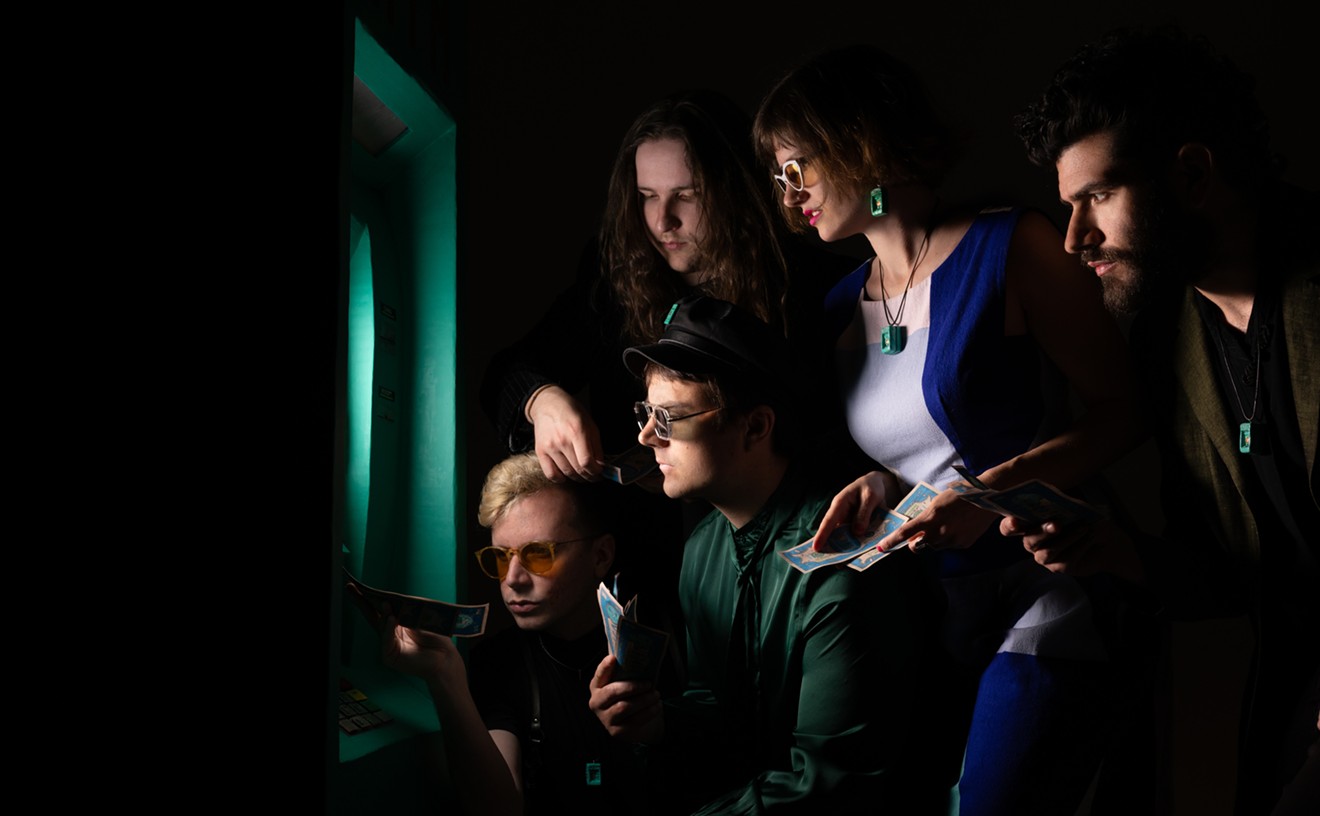When it comes to the tastes and inclinations of millennials, a few axioms are unimpeachably true. They love avocados and the dog Snapchat filter. They reject the concept of napkins and are reluctant to buy homes, possibly because their budgets are only big enough to account for avocados. They love sharing about politics on social media, whether it be expressing their profound distaste for the commander-in-chief or posting poorly drawn frogs.
Musically, it's harder to ascribe a firm identity to millennials. With the rise of the internet and the popularization of discussion forums, musical identity markers have become blurry. Unlike their parents and grandparents, whose limited budgets and geographic distance fostered narrow musical tastes, millennials have the totality of music history at their fingertips, ready to be streamed and devoured for next to nothing. It's not at all uncommon for a young person who loves house music to admit to an equal fondness for punk.
But there is one truth that binds millennials. It does so silently, widely understood but rarely discussed, implied by its very absence from conversations about great music:
Most millennials don't give a shit about U2.
As Bono and company make their way around the world in support of The Joshua Tree's 30th anniversary, there's been some hand-wringing over what it means to be U2 in the time of Trump. For good or for ill, U2 became one of the most public faces of the post-Cold War, pre-9/11 optimism that pervaded the late '80s and '90s. Between the bandmates' well-documented charity, world-unifying anthems, and bombastic live shows, they managed to convince a significant portion of their audience — and possibly themselves — that war really was over if we wanted it. Even when they forced audiences to confront horrors like the Bosnian genocide during their 1992-93 Zoo TV Tour, the implacable optimism at the heart of U2's ethos shone through. They told us that rock 'n' roll could, and no doubt would, change the world.
It didn't.
Nothing screams "establishment" quite like teaming up with Apple.
tweet this
Decades removed from the height of the band's popularity, U2's music now rings as nostalgic rather than progressive. It's aspirational music from an aspirational time. For those who came of age in the '80s and '90s, the Edge's soaring guitar work and Bono's plaintive vocals come across as, to crib the title of their most recent record, songs of innocence.
For the baby boomers and Gen X'ers who haven't allowed the unkept promises of the new millennium to retroactively spoil their youth, U2, both live and on record, remains a thrilling proposition. But for the millennials who grew up in the shadow between the idea and the reality, it's difficult to separate the band's saccharinely sincere vision of a better tomorrow — and the disappointment that ensued — from any merits the music might otherwise possess.
It's not hard to see why. Ignoring the perpetual warfare, breakdown of effective governance, and economic contractions that have characterized the 2000s, American millennials grew up with popular music that eschewed the globally conscious ambitions of U2. Music of the '00s was more personal, and some would argue more honest, material. Millennials were reared on the introspective angst of grunge's tail end, the carefree abandon of Britpop, the excess and social indignation of rap, and the communal hedonism of electronic music.
And it's tough to reconcile U2's vaguely socialist sentiments with Bono mugging it up with the likes of eternal war criminal George W. Bush. Bono's assertion that "commerce [and] entrepreneurial capitalism takes more people out of poverty than aid" is unlikely to play well with the Bernie Sanders crowd. It's tough to endear people to your fight when you embrace the very thing you're fighting against. Besides, the prospect of relating to an Irishman singing about the plight of Martin Luther King Jr. today qualifies as problematic.
Also not helping matters: the 2014 incident in which U2's Songs of Innocence was automatically downloaded to all iTunes users' accounts. Many millennials never forgave U2 for violating their carefully curated music libraries; the incident, for many, marks the beginning and end of their familiarity with the group. That might have been the last straw for young people who, in their rejection of the status quo, had already begun to prefer more iconoclastic figures of rock and pop, artists such as David Bowie, Ian Curtis, and Prince. Nothing screams "establishment" quite as loudly as teaming up with the real-world equivalent of Skynet for an album release.
But beneath the decades' worth of baggage and occasionally questionable musical and aesthetic choices, there's a lot worth loving about U2. Before it became a contrived and forced liability, U2's earnestness was its greatest asset, and there are stretches of Boy and War that still sound as riveting in their convictions as they did in the '80s. When the band sticks to subject matter close to its members' hearts — "Sunday Bloody Sunday" and the entirety of Boy come to mind — instead of vague, generalized platitudes about love, the music thrives and resonates. Zooropa, release in 1993 and once regarded as a confused, middling effort, has aged well precisely because it makes a genuine attempt at grappling with the propagation of consumer culture and media saturation. And although it's rhetorically risky to use "cool" and "U2" in the same sentence, there's something undeniably ballsy about a stadium-rock outfit releasing a pleasant Kraftwerk cover alongside a track as big and vacuous as "Vertigo."
Even with a co-sign from rap wunderkind Kendrick Lamar and producer Mike Will Made-It, the possibility of a U2 millennial revival remains a distant possibility, contingent upon a generation collectively deciding to dismount from its musical high horse and embrace the band's unironic sincerity and pomp. Or humanity could just get its act together and become the global utopia the band has been working toward for the better part of four decades, whichever one comes first. How long must they sing this song?
U2: The Joshua Tree Tour 2017
7 p.m. Sunday, June 11, at Hard Rock Stadium, 347 Don Shula Dr., Miami Gardens; 888-346-7849; livenation.com. Resale tickets cost $112 to $2,286 via ticketmaster.com.












